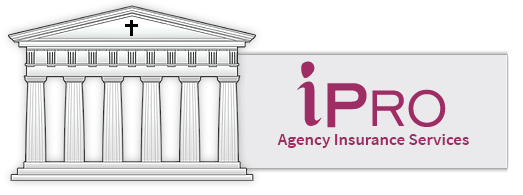There is a vast scope of labor laws that every employer needs to be aware of. Complying and staying up on all the evolving federal and state labor laws and regulations is crucial to keeping a business running smoothly. Most companies have the means to hire HR professionals and legal counsel to stay informed of labor laws. However, there is no leeway for breaking the law. Stay up on labor and employment regulations so business operations will not be disrupted. Failure to follow labor laws may lead to hefty financial penalties and potentially even jail time. Plus, resulting lawsuits can greatly damage a brand’s reputation.
FMLA and Employee Leave
Under the Family and Medical Leave Act, private-sector employers with at least 50 workers are required to offer eligible employees 12 weeks of leave within a year’s time frame if they or a family member becomes ill. Although this is unpaid, it can not jeopardize their position. There are very specific coverage and eligibility requirements, and the act also prohibits employers from interfering with the rights provided by the law. It is important that employers assess the reason employees give for their leave with an employee request form and medical certifications to determine if the absence meets the legal standards.
Non-unionized Employers
The National Labor Relations Act applies to most businesses, granting employees the right to unionize, collectively bargain, participate in activity for mutual aid and protection, and discuss the terms and conditions of employment, such as wages. The act’s aggressive approach to workplace social media policies has been challenging for employers. Employers should be very cautious of their social media policies, and use legal counsel when necessary to ensure they aren’t restricting online activity they don’t have the authority to. However, an employer’s reasoning for having a policy in place is taken into consideration before the ruling if the employee’syee rights were violated. Keep in mind that even without unionized workers in the workplace, this act allows employees the right to form labor unions to discuss bargaining agreements, workplace conditions, and their salary.
Affirmative Action
Employment discrimination protections for veterans and individuals with disabilities are quite strong under the Vietnam Era Veterans’ Readjustment Assistance Act and Section 503 of the Rehabilitation Act. The affirmative action requirements for covered federal contractors and subcontractors include measurable hiring targets, recordkeeping, and data-tracking obligations. Contractors must try to achieve a utilization goal for hiring qualified individuals with disabilities. Plus, the OFCCP mandates hiring benchmarks for protected veterans. Also, employers must encourage applicants to self-identify on OFCCP-compliant forms as protected veterans or disabled individuals before a job is offered and after a job is offered.
Employee Misclassification
The Fair Labor Standards Act requires covered protects emperors in regards to working overtime. Employers must pay workers who put in more than 40 hours per week 1.5 times their hourly rate. Depending on a business’s relationship with indent contractors, these workers may technically be employed by the government. Worker status is determined based on behavioral factors, financial factors, and type of relationship. The employer’s control of an employee’s daily operations and their contributions to the business are typically what determine the worker’s status.
OSHA’s Workplace Safety Rules & Whistleblower Protection Program
OSHA’s (Occupational Safety and Health Act) goal is to keep workers safe and out of hazardous situations with a variety of safety regulations. For instance, if there are any dangerous chemicals involved with workplace operations, the employer must give safety data sheets about the substances to employees and display labor law posters informing workers how to report workplace safety issues properly. Employees should also provide access to OSHA inspection information and training if needed. It is crucial to secure CA EPLI, so you are protected from any mishaps in your process.
All employees should feel comfortable speaking up about workplace violations. The Occupational Safety and Health Administration (OSHA) Whistleblower Protection Program allows employees to report a company’s violations without fear of termination or retaliation. This program protects workers so they can express concerns, as employers are violating the law if they retaliate against the employee in any way.
About IPRO Agency Insurance Services
IPRO Agency Insurance Services is a specialty insurance brokerage with the expertise to protect your firm, assets and to help you retain clients. Our services offer all types of professionals the protection they need so they can stay committed to their work with ease. We are connected with leading insurers to bring you the best coverage for your unique needs and areas of risk. Get in touch with us at 888- 673-8039 so we can begin to safeguard your success.


